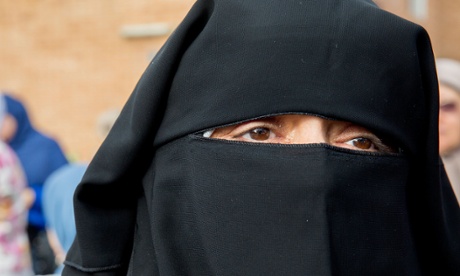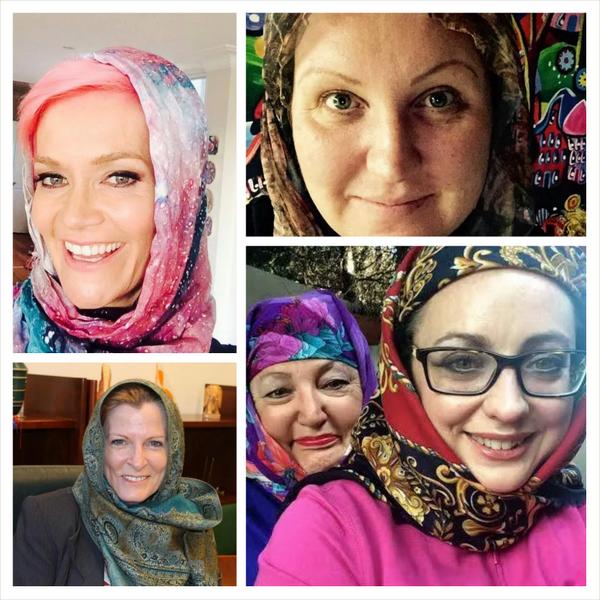When I was 13, I read a book that changed my life (so dramatic!)
"It was a book about Sabrina the Teenage Witch..." the tale always begins.
Sabrina, in her infinite wisdom, had erased herself from existence, but could see what life was like without her. Her aunts didn't talk to each other because she wasn't there to broker peace, her boyfriend was in jail because he had gone off the tracks without her guidance and her best friend was dating an abusive guy because Sabrina wasn't around to help show her she was worth more.
In short, Sabrina understood that even though she might recognise the impact she had on the people around her, every interaction she had - her very existence - changed the world around her, for the better.
I decided, at 13, to make that my mantra. Life was to become about making every interaction one that would have a positive impact on the world around me.
Easier said than done, of course.
Sure, it is the ideal framework to have in mind, but it can often fall to the wayside while going through #life, or simply struggling through life's challenges. When things are busy or challenging, it become much more difficult to consciously be thinking about the impact we are having on those around us. Instead, we are focused on how to take the next step, how to get through every moment.
After graduating from University, I spent near-half a year with my family in Sudan, attending the International University of Africa to learn formal Arabic. It was a crazy experience and was actually the inspiration to start this blog - many of my early blog pieces were about trying to understand what was going on around me.
The classes I attended were made up of young women from various parts of Africa, often mothers who brought their kids to class and who lived incredibly different lives to mine. It was eye opening, enriching, enlightening - but also, incredibly tough. I tried to be myself in a world that had a very strong view on what I 'should be' - and I wasn't playing by the rules. I had to learn how to navigate a new system I didn't quite fit in, and so often disconnected.
I made friends, some of whom I still occasionally talk to today, but unfortunately, I lost contact with most of my new friends and colleagues. That is why a recent email in my inbox caused me an unreasonable amount of joy:
“Salam alaikum dear Yassmin...welll I really don’t know where to start from coz I’m excited. I thought I should share my excitement with you coz you are someone I have always been convinced is of great intellect and life touching potentials, even though I only met you for a short time and we got to talk a few times. ”
Oh! Interesting, I thought. My curiosity was piqued.
“Yes! we’ve met before and that’s the more reason why I’m excited...sometimes in early to mid 2012 we were at the same institute of Arabic language (ma’ad lugha al arabiyyah) at International University of Africa, Khartoum, Sudan.
We weren’t actually classmates but we’ve had the opportunity to study together at one of those instances where the teachers have to merge students together for some classes. It was on one of those occasions we met and we talked not so extensively, but heartily. You might not remember who I am, but I do vividly remember you, such that when I randomly watched your TED talk on YouTube while just surfing the internet, I knew it was you even without remembering your name, I just knew it was you...that’s how people with infectious personality, high intellect and extremely inspiring leave me feeling even if we’ve only known each other for a few seconds.
You might be wondering why I’m excited. I’m excited because since I stopped seeing you around at ma’ad lugha, it would cross my mind once in a while what you are up to where ever you are. Seeing you on TED and reading a few other things about you, and realizing that you’re doing great for yourself, and not just that, you’re also inspiring others to bring out the best in themselves is just amazing.
I’m really proud and greatly inspired by you. Keep up the good work and Allah is your strength.
We might not have so many things in common, but like you said in one of your talks, “you want to do so many things, that at the end of the day, you just want to be useful”.
I think we share that in common, and you are one of my inspirations to work even better at achieving that goal. I also have a few things going on in my life, if you do not mind, I could share them with you.
Take care. ”
That is what makes it all worth it.
That, ladies and gentlemen, is the spice of life. To know that our actions are having an impact on others in ways we cannot even imagine, is incredibly humbling. To know that a conversation that you have - a single conversation - can be remembered, is powerful, because it reminds us of the potential of every.single.interaction.
We must never forget that.
I recently met a guy who left his high paying job as a lawyer to start his dream company. When I asked him why he studied law, his response was further proof of the impact of small moments.
“Well, at my speech night someone - an important someone - asked me what I was planning to do with my life. I told him, and he said “No son, you’re going to study law and commerce and do this, this and this...” and that’s what I did!”
Now that 'important guy' may not even remember the conversation he had with a young graduating student, but his comments shaped this man's life.
What keeps me going? Knowing that any of the conversations I have, the smiles I share and the paths I cross has the potential to be life changing - for me, or for those around me.
The same applies to you! Without realising it, you could be giving confidence to the next Mohammed Ali, helping out the next Malala or giving the nudge needed for the next Elon Musk.
How exciting is that?!
























